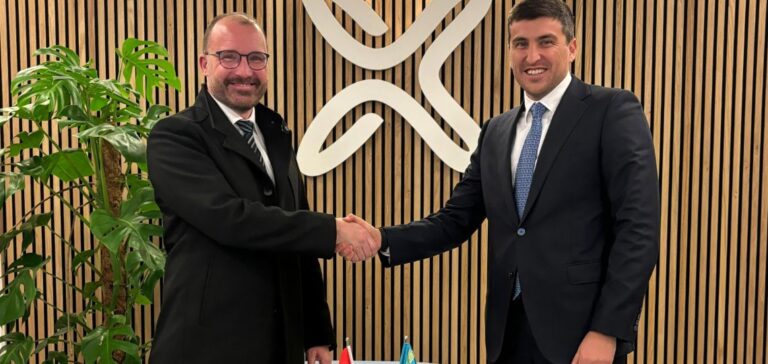Kazakhstan, the world’s largest uranium producer, has taken a significant step by signing its first supply contract with Switzerland. On Monday, state-owned company Kazatomprom formalized an agreement with Axpo, the country’s leading energy provider, to deliver natural uranium concentrate for the Beznau and Leibstadt nuclear power plants.
A Strategic Agreement for Switzerland
This partnership comes at a time when Switzerland is reshaping its energy policy. Since the reduction in Russian gas supplies, the Confederation has been exploring alternatives to ensure a stable electricity supply. The deal with Kazatomprom marks an important milestone in this effort.
While the delivery volumes remain undisclosed, an Axpo representative emphasized that this agreement will contribute to the country’s energy stability. Kazakh uranium will play a key role in the operation of Swiss reactors, which currently generate about 29% of the nation’s electricity production.
A Changing Nuclear Industry
Last December, the Swiss federal government announced plans to amend the law that has prohibited the construction of new nuclear power plants since 2018. This legislative shift is driven by the need to increase carbon-free energy production to reach net-zero emissions by 2050.
Switzerland’s seasonal dependence on electricity imports, especially in winter, has intensified the push for diversification. The agreement with Kazatomprom reflects a proactive approach to securing future energy needs through diversified supply channels.
Kazakhstan: A Global Leader in Uranium
As a key player in the uranium market, Kazakhstan accounts for more than 40% of global production. It is also the third-largest supplier of natural uranium to the European Union. This dominant market position makes Kazatomprom a crucial entity in the nuclear supply chain.
Despite its vast energy resources, Kazakhstan faces domestic power shortages. To address these challenges, the country is planning to build a nuclear power plant near Lake Balkhash. Several international players, including Russia, China, France, and South Korea, are competing for this strategic project.






















